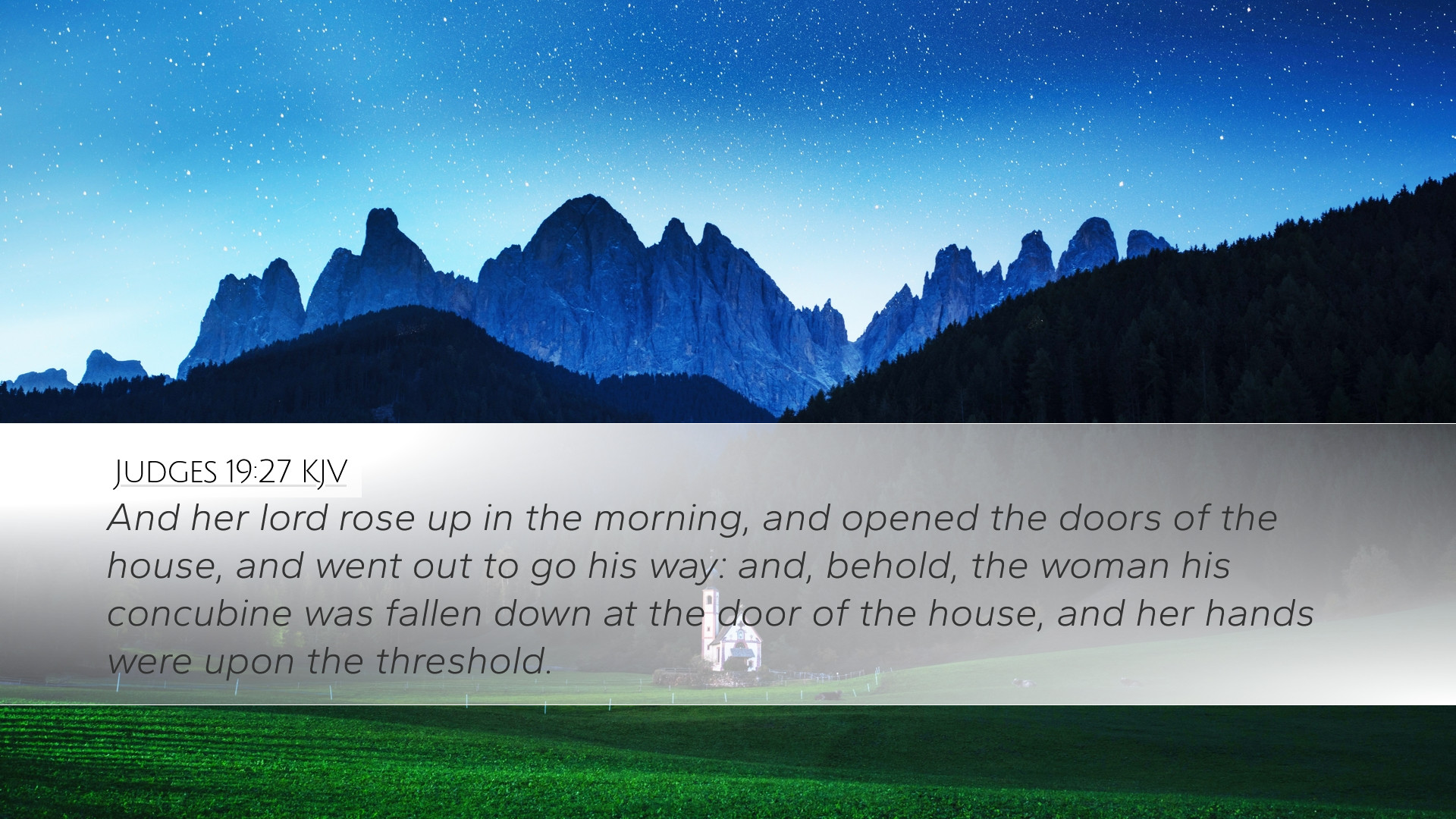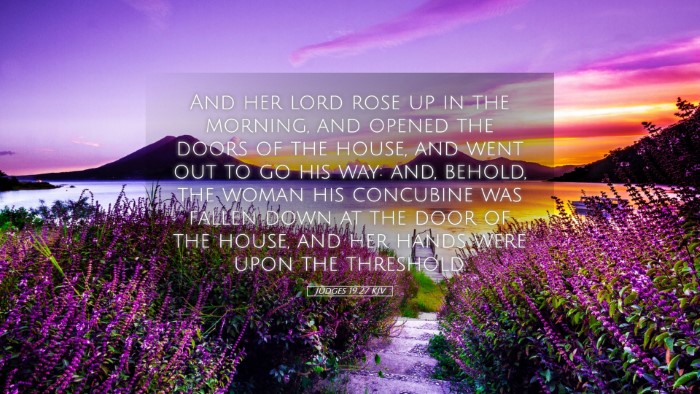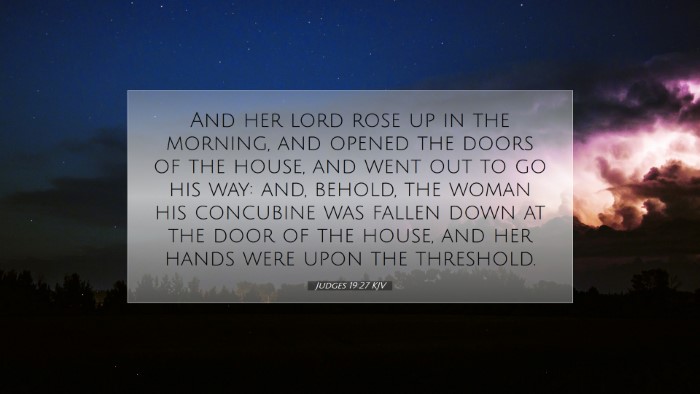Commentary on Judges 19:27
Verse Context: Judges 19:27 states, "And her lord rose up in the morning, and opened the doors of the house, and went out to go his way: and, behold, the woman his concubine was fallen down at the door of the house, and her hands were upon the threshold." This verse occurs within a troubling narrative that unfolds themes of violence, neglect, and social chaos in Israel during the time of the judges.
General Observations
This verse serves as a pivotal moment in a deeply disturbing story that highlights the moral decay of Israel. The actions of the Levite and the fate of the concubine illustrate a profound failure of societal and familial responsibilities.
Insights from Matthew Henry
-
Moral Decay: Henry points out that this story exemplifies the moral and social disintegration that occurred during the period of the judges. The Levite's indifference to the plight of his concubine reflects a heart hardened by societal chaos.
-
Lack of Compassion: The tragic condition of the woman, left at the threshold, symbolizes the neglect and abuse prevalent in the relationships of the time. Henry highlights the emotional detachment of the Levite, who appears more concerned with his journey than the suffering of his partner.
-
Symbolism of the Door: The door serves as a powerful symbol. It signifies both entry and exclusion, representing how the Levite’s household values failed to protect and honor the vulnerable within his care.
-
Call to Reflection: Henry encourages readers to reflect on their own communities and relationships, urging them to take responsibility for those who are vulnerable and to confront the uncomfortable truths about their societal circumstances.
Insights from Albert Barnes
-
Contextual Background: Barnes provides an understanding of the cultural framework of the time. He asserts that concubinage, while accepted, often led to extremely grave consequences for women, marking them as property rather than equal partners.
-
Levite's Responsibility: Barnes emphasizes the Levite's failure to protect his concubine, which he interprets as indicative of broader societal failures. This culminates in the ultimate tragedy, where personal ambition prevails over the welfare of the weak.
-
The Significance of the Threshold: He elaborates on the theological implications of the threshold, suggesting it represents a boundary between safety and danger, illustrating the precariousness of the woman’s position and the Levite's lack of acknowledgement of the threats present.
-
Call for Societal Redemption: Barnes calls for a prophetic voice to arise from within contemporary society that confronts moral failures, encouraging readers to seek restoration and healing within their communities.
Insights from Adam Clarke
-
Literary Analysis: Clarke offers a keen analysis of the narrative structure of Judges. He indicates that this event is presented as part of a larger downward spiral of lawlessness throughout Israel, showcasing the seriousness of moral decline.
-
Emotional Impact: He delves into the emotional gravity of the text, reflecting on the husband's actions as indicative of deep-seated issues within familial love and responsibility. Clarke urges pastors to draw on this narrative to address the often-overlooked emotions present in biblical stories.
-
Critique of Leadership: Clarke notes that leaders like the Levite bear immense responsibility, and their failures perpetuate social wrongs. He highlights the need for leaders, both in the church and broader society, to exhibit righteousness and moral integrity.
-
Redemptive Possibilities: Despite the darkness of the text, Clarke suggests looking for redemptive threads within the narrative, such as calls to repentance and the longing for restoration among the people of Israel.
Conclusion
Judges 19:27 encapsulates a moment of despair within a broader narrative of hopelessness in Israel's history. The combined insights from Matthew Henry, Albert Barnes, and Adam Clarke encourage an understanding that transcends the text itself, challenging readers to reflect on contemporary moral issues, the responsibility towards the vulnerable, and the necessity for compassion and accountability in leadership.
In preparing sermons, studies, or theological discourses based on this verse, it is essential to grapple with the real-life implications of the story. Addressing themes of neglect, abuse, and moral decline not only offers opportunities for critical engagement with the scripture but also invites a transformative dialogue on how faith communities can respond to modern-day challenges.


